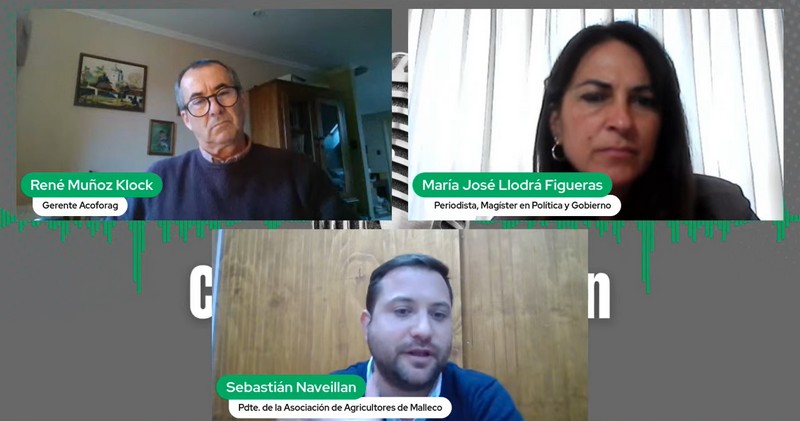Sebastián Naveillán, president of the Malleco Farmers' Association and former commissioner of the Commission for Peace and Understanding, shared his critical perspective on the process and the reasons that led him not to endorse the final report of the body in a conversation with Acoforag.
Naveillán began his remarks by highlighting a fundamental difference between this commission and previous experiences: the cross-party political support at the time of its creation. "I believe the main difference is that it indeed started with cross-party political support because there was genuine initial goodwill to move forward on this issue," he explained.
In the opinion of the trade leader, this initial political backing created a context that facilitated more active participation from civil and private sectors. "That cross-party support allowed us from the private sector to join in, not just as observers but as active participants. The Vargas Commission also had private-sector representatives, but this time the representation was more direct, with people like Alfredo Moreno and myself, who come from that world," he added.
Halting the Purchase of Land
However, after 21 months of work and multiple sessions, Naveillán chose not to approve the final report. The underlying reason, he explained, was the last-minute inclusion of a paragraph proposing that the new reparations system allocate around 200,000 hectares for indigenous communities. "For me, that point was a red line. I was always clear from the start: we must stop buying land here. I understand that until the current indigenous law is reformed, this practice must continue, but I couldn’t accept the new system perpetuating this logic," he stated firmly.
The leader acknowledged that the work within the commission involved complex, often intense negotiations, and while progress was made on certain issues, consensus was not reached on others. "We negotiated a lot, very intensely. They modified the paragraph, changed synonyms, but the meaning remained the same. And I knew the intention behind it," he asserted.
When asked if this was the only point of disagreement, Naveillán was clear: no. He also expressed concern about the ambiguity of the final text, which—he noted—could lead to interpretations that spark new conflicts, as has happened with the current Indigenous Law. "I didn’t want to repeat the same mistakes. Ambiguity has caused problems for 30 years. We need clear rules that leave no room for double readings," he emphasized.
Another issue that raised concerns for him was the constitutional recognition of indigenous peoples and the possibility of establishing self-governance for communities. "I strongly agree with granting more freedom for communities to develop, even for commercial purposes. But not with granting self-governance or recognizing collective rights in the Constitution. These are issues that have already been voted on and democratically rejected. It bothered me that they were being pushed again," he cautioned.
Process at Its Peak
Regarding the atmosphere within the commission and the possibility of extending deadlines to reach a consensus, Naveillán was skeptical. "I believe the process reached its peak. It was a nearly two-year negotiation, and emotionally and psychologically, that takes a toll. At some point, the chewing gum can’t be stretched any further. Positions were clear, and I didn’t see real conditions to prolong the commission’s work," he concluded.
Despite the differences that led him to distance himself from the final report, Sebastián Naveillán valued the experience and effort of the various actors involved in the process. "Many had the willingness to build something better, and that must be acknowledged. But one must also remain consistent with the principles they defend," he concluded.
The full interview is available on Acoforag’s YouTube channel:







Comments (0)
No comments yet. Be the first to comment!
Leave a comment